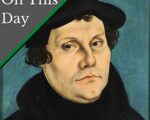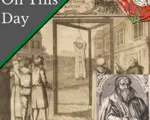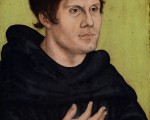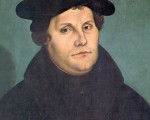
On this day in Tudor history, 31st October 1517, Martin Luther is said to have posted his 95 Theses on the door of the Castle Church in Wittenberg, although all we know for definite is that the Reformer, priest and professor of theology posted them to Bishop of Brandenburg and the Archbishop of Mainz.
The full title of Luther’s work is the “Disputation of Martin Luther on the Power and Efficacy of Indulgences”, and in it, Luther was protesting against the sale of indulgences by the papacy, as well as other points.
Luther’s actions on 31st October 1517 had far-reaching consequences and were the catalyst of the European Reformation.
Find out more about Martin Luther’s 95 Theses and what happened next…
[Read More...]


